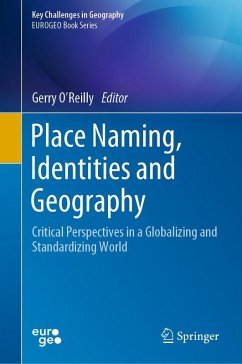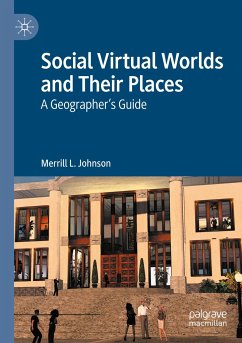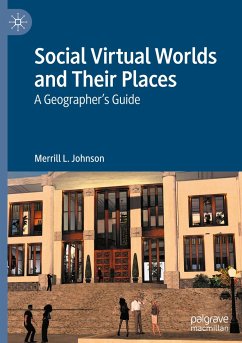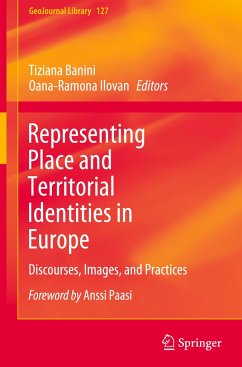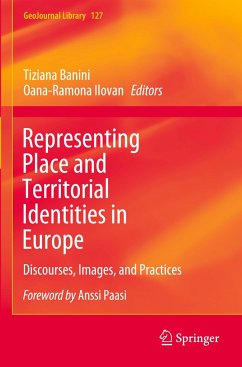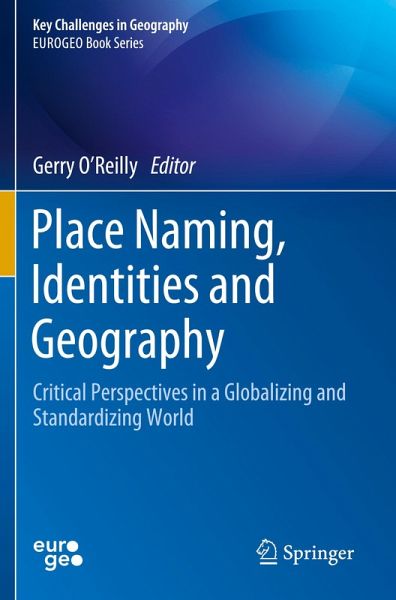
Place Naming, Identities and Geography
Critical Perspectives in a Globalizing and Standardizing World
Herausgegeben: O'Reilly, Gerry
Versandkostenfrei!
Sofort lieferbar
64,99 €
inkl. MwSt.

PAYBACK Punkte
32 °P sammeln!
This book presents research on geographical naming on land and sea from a wide range of standpoints on: theory and concepts, case studies and education. Space and place naming or toponymy has a long tradition in the sciences and a renewed critical interest in geography and allied disciplines including the humanities. Place: location and cartographical aspects, etymology and geo-histories so salient in past studies, are now being enhanced from a range of radical perspectives, especially in a globalizing, standardizing world with Googlization and the consequent 'normalization' of place names, pe...
This book presents research on geographical naming on land and sea from a wide range of standpoints on: theory and concepts, case studies and education. Space and place naming or toponymy has a long tradition in the sciences and a renewed critical interest in geography and allied disciplines including the humanities. Place: location and cartographical aspects, etymology and geo-histories so salient in past studies, are now being enhanced from a range of radical perspectives, especially in a globalizing, standardizing world with Googlization and the consequent 'normalization' of place names, perceptions and images worldwide including those for marketing purposes. Nonetheless, there are conflicting and contesting voices. The interdisciplinary research is enhanced with authors from regional, national and international toponymy-related institutions and organizations including the UNGEGN, IGU, ICA and so forth.



